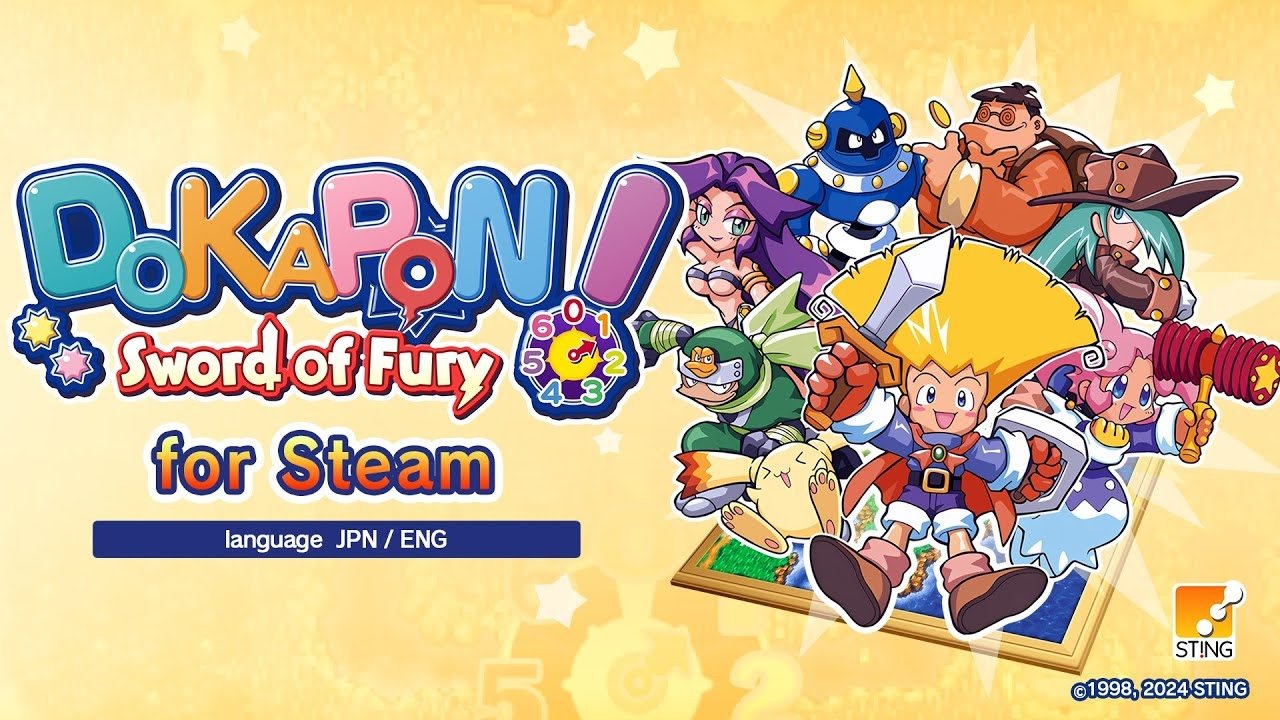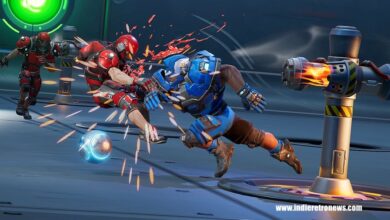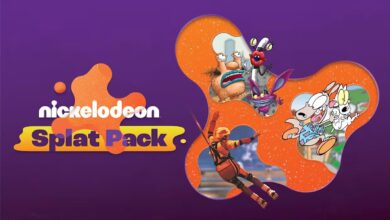Sting’s infamous relationship-destroying party RPG steps outside of Japan once more.
Lemme tell ya, if there’s anything the world needed right now, it’s another catalyst for irreparable arguments with friends and loved ones. Thanks, Sting.
ARCADE ARCHIVES
Final Star Force
- Platform: Nintendo Switch, PlayStation 4 (worldwide)
- Price: $7.99 / €6.99 / £6.29
- Publisher: Hamster / Koei-Tecmo
What’s this? A vertically-scrolling sci-fi shooting game, originally developed and distributed in Japanese arcades by Tecmo in 1992 and never ported or reissued until now; while this game is nominally a sequel to Tecmo’s popular 1984 shooter Star Force, the aesthetic and design borrows virtually nothing from its namesake and a whole lot from contemporary games like Raiden, including the adoption of a shot-and-bomb system with three different types of shot pickups, as well as a unique system whereby the player’s shots will automatically level up over time and decrease in level when the player dies. (The enhancements presented here include toggles to address the game’s conspicuous performance issues, as well as some other tweaks to mitigate tedious boss milking.)
Why should I care? This game has a reputation for being a blight on the Star Force name and a terrible shooting game in its own right, and… well, I understand the disappointment, but I do think those looking for a Raiden-style game minus Raiden’s level of challenge might enjoy their time with it/
Helpful tip: It seems that the measures taken to address the original game’s slowdown, which was severe enough to eat player inputs, may have introduced their own more modern performance issues that themselves are eating player inputs, so keep an eye out for a patch.
EGG CONSOLE
Zanac (MSX)
- Platform: Nintendo Switch (worldwide)
- Price: $6.49 / ¥880
- Publisher: D4 Enterprise / Compile
What’s this? The original version of Compile’s signature vertical shooting game Zanac, initially released for the MSX in mid-1986 and redesigned for Famicom Disk System later that year, with the FCDS version ported to both NES and MSX2 (as Zanac EX) in 1987 and later reissued in one form or another on every platform EGG has worked with; players shoot their way through eight lengthy fast and faster-scrolling stages while collecting power chips to grow and maintain the strength of their main shot, grabbing and cycling a wide variety of unique subweapons, uncovering hidden scoring items and destroying the boss-style fortresses at the end of each stage, all the while negotiating a wildly variable menagerie of enemies whose appearance and aggressiveness are dictated by the “ALC (Auto Level Control)” system
Why should I care? It could be argued that Zanac was both the first home-exclusive shooting game that stood up to the arcade greats of its day and the most influential home-exclusive shooting game to ever be released — not only was it a massive sales success and the formation for Compile’s subsequent run of popular home-platform shooting games that included the likes of Aleste/Power Strike, M.U.S.H.A., The Guardian Legend and Blazing Lazers but its constituent elements have been largely adopted and subsumed into the broader DNA of the genre. That said, the original MSX version offered here was not nearly as widely-played as the FCDS/NES version, nor is it 1:1 to the version you’re probably most familiar with, but the experience is close enough that you’re likely to appreciate rather than resent the differences, and the technical excellence required to wring such performance out of the regular ol’ MSX is impossible to ignore.
Language barrier? Not even a little bit.
G-MODE ARCHIVES+
Tantei Kibukawa Ryousuke Jiken-tan Vol.16: Awayuki wa hi no Kanashimi
- Platform: Nintendo Switch (Japan), PC via Steam (worldwide)
- Price: $7.99 or equivalent
- Publisher: G-MODE / And Joy
What’s this? Volume sixteen of And Joy’s (formerly Genki Mobile) series of popular detective mystery adventure games, originally released for smartphones across 3 episodes in 2011 and presented here in one package; in this volume, the main protagonists stumble upon an undiscovered notebook containing unread case records written by their late assistant Ryoji Sagashima. What secrets lie within…? (The Steam version’s had a last-second delay and will be out sometime next week.)
Why should I care? I mean, I haven’t yet played it so I may very well be wrong, but I believe this is the episode that finally ties a bow around most of the long-standing mysteries surrounding the death of Sagashima.
Useless fact: This might not be apparent to anyone whose eyes glaze over at the sight of any and every G-MODE Archives detective myster game reissue but this is the Kibukawa episode to hit the service in well over a year, and there aren’t a whole lot of ’em left in the stash, either.
OTHER
DOKAPON! Sword of Fury
- Platform: PC via Steam (worldwide)
- Price: $19.99 or equivalent
- Publisher: Nintendo
What’s this? A remaster of the fourth entry in Sting and Asmik Ace’s long-running Dokapon series of friendship-destroying multiplayer-centric RPG boardgames, originally released for the Sony PlayStation in Japan in 1998 and remastered for the Switch in Japan last year, and now available globally on PC; in addition to the first-ever English localization, this remaster boasts online multiplayer functionality (including Remote Play Together support), fast-forward toggles of up to x5 speed, the ability to switch the BGM to music from other Dokapon games and a wide suite of adjustable options, dubbed “Secret Sauce”, that allow players to tweak or disable the game’s many overbearing systems. (A global release for the Switch version is still up in the air, apparently.)
Why should I care? The other Dokapon games released globally, including the recent Dokapon Kingdom Connect, have been remakes of classic entries which carry their own pros and cons in terms of the complexity and/or balance of the original material, but this remaster’s a little different: Sword of Fury was the series’ first jump to CD-based platforms and saw them experimenting with discrete, named characters and a substantial voice-acted story that was largely absent from future titles, and some of the new systems like the treasure system, which largely leaves character speccing up to the semi-random discovery of some intensely powerful hold items, and the alliance system which lets players formally team up to screw over others and/or each other with maximum ruthlessness, stand out even in a series known for capriciousness and dickery, so it’s a little harder to recommend as a series intro. That said, the fast-forward really does do a lot to combat the slowness of the added narrative elements, and while you won’t necessarily understand what to tweak and what to leave alone on a first playthrough (nor can I guarantee you’ll still have friends to play with after your first game), the Secret Sauce settings give you as much control over the sillier aspects of the game as you could reasonably expect.
Useless fact: One of the only streaming guidelines for this game requests that players remain friends when they’re done, which… is a big ask.
Star Wars: Episode 1 – Jedi Power Battles
- Platform: PlayStation 5, PlayStation 4, Xbox, Nintendo Switch, PC via Steam (worldwide)
- Price: $19.99 or equivalent
- Publisher: Aspyr
What’s this? A port of LucasArts’ co-op action game tie-in to the massively-hyped Star Wars Episode One, originally developed and published for the Sony PlayStation in 2000 and given an enhanced port to Sega Dreamcast later that year; this new port is based on the Dreamcast build and offers both modernized and classic controls, a toggle to change the in-game lightsaber colors to their film-accurate hues, the option to play as many characters formerly only present as NPCs (including Jar Jar Binks) and other small tweaks.
Why should I care? I gave up trying to answer that question ten bad Star Wars game reissues ago.
Helpful tip: Most of Aspyr’s ports, and their Star Wars ports in particular, have launched in a terrible state, but I’ve not heard anythng particularly worrying about this one (beyond the overall quality of the game itself, anyway).
Strania: The Stella Machina EX
- Platform: Nintendo Switch (worldwide)
- Price: $14.99 or equivalent
- Publisher: G.rev
What’s this? A fresh home port of the latest version of G.rev’s vertical mecha-drama shooting game Strania, which was originally released for Xbox 360 and Japanese arcades in 2011, ported to PC in 2015 and ported back to arcades with new content in 2021; this Switch port brings back most, but not all, of the additional content from the EX arcade version, which includes rebalanced weapons and difficulty options and an additional arranged soundtrack by original composer Keishi Yonao, as well as the inclusion of the “Side Vower” game campaign that was originally sold as DLC.
Why should I care? You’re looking for a classic-style shooting game that’s not a bullet hell nor a throwback, and one that blends console-style production and game direction with arcade-style clarity; this game boasted best-in-class visuals and a fresh game feel even when it was new and, for better and worse, it hasn’t really been eclipsed by anything since. I shoul also note that the aforementioned “Side Vower” campaign isn’t just a remix mode or a new ruleset: it’s a whole second game starring the rival faction of the main game, so if you like this game, you’re getting a lot of bang for your buck. (This release is also significant inasmuch as it marks the first home port of games from a certain arcade platform that contractually mandates exclusive content/features…)
Useless fact: Hiroshi Iuchi, creator of Ikaruga and Radiant Silvergun, helped out on this game, and while it’s not “their” game as such, many of the stages and background bear his touch.
STUFF WOT I MISSED
Snow Bros. Special Anniversary Edition, out last month
- Platform: PC via Steam (worldwide)
- Price: $9.99 or equivalent
- Publisher: Daewon Media / CRT Games
What’s this? An expanded PC port of the recent remake of Toaplan’s cult fixed-screen roll-em-up Snow Bros., originally released in arcades in 1990 and ported to the Game Boy, NES/Famicom and Sega Mega Drive and remade for Nintendo Switch by Korean studio CRT Games in 2022; this PC version offers some additional features and content over the Switch version, including the option to play the original arcade version, online leaderboards and the integration of the play-as-anyone “Monster Challenge” mode, which was originally paid DLC, into the base package.
Why should I care? When the Switch remake dropped, people complained that it didn’t include online leaderboards nor the original arcade version, so props to CRT Games for addressing that feedback, albeit years after the fact on a different platform. (These changes are coming to Switch one way or another, as far as I’m aware.) Now, certain people might continue to complain that this game was and remains a Bubble Bobble also-ran, but there’s no accounting for taste, no matter how repugnant it might be.
Helpful tip: Just in case you weren’t aware, Snow Bros. is getting its second wind right now: the brand-new 3D revival game, Snow Bros. Wonderland, recently hit PC and consoles; the team behind this remake is about to release a remake of Snow Bros. 2 (which will feature online multiplayer with cross-play), and even the indies are getting in on the craze with games like Slam and Roll.





